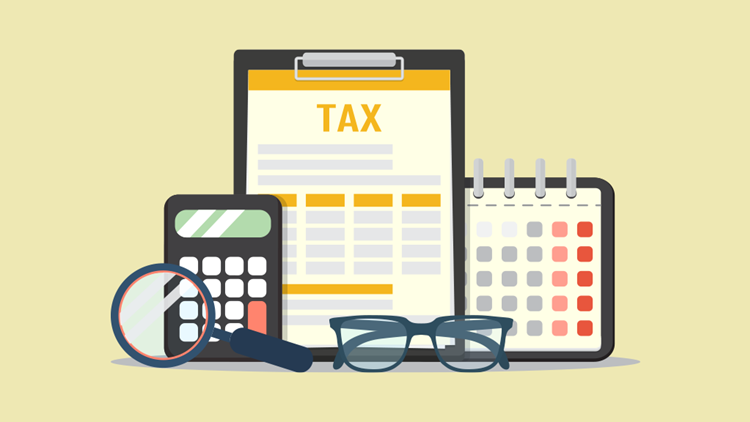by Ameritax | Oct 6, 2021 | Tax Tips and News
Everyone likes more choices nowadays, and the Internal Revenue Service is set to deliver. They’re serving up a batch of new self-study seminars for tax professionals.
Eighteen new seminars—recorded in July and August as part of the 2021 Nationwide Tax Forum – are now available through the IRS Nationwide Tax Forums Online.
Tax pros, from CPAs to enrolled agents, Annual Filing Season Program participants and others, can all earn continuing education credits at $29 per credit.
2021 Online Course List
- Advocating for Taxpayers in Order to Avoid Abusive Tax Schemes
- Be Tax Ready – Understanding Rules for Due Diligence and the Child Tax Credit and Earned Income Tax Credit Under the American Rescue Plan Act of 2021
- Charities & Tax-Exempt Organizations Update
- Closer Look at the IRS Independent Office of Appeals
- Collection Flexibilities During Difficult Economic Times
- Common Issues Presented to OPR and Best Practices to Address Them
- Determining an Individual’s Tax Residency Status
- e-Services and You
- Gig Economy
- Helping You and Your Clients Steer Clear of Fraud and Scams
- Key Enforcement Issues
- Keynote Address
- Keys to Mastering Due Diligence Requirements and What to Expect During a Due Diligence Audit
- Overview of Taxpayer Civil Rights
- Professional Responsibility Obligations when Practicing before the IRS: OPR and Circular 230
- Retirement Plans – IRS Compliance Initiatives
- Tax Law Changes from a Forms Perspective
- Virtual Currency
These new seminars join more than 35 sessions from previous years that are also available for credit.
Continuing Education Credits
Nationwide Tax Forums Online is a qualified sponsor of continuing education. The organization is registered with the IRS Return Preparer Office (RPO) as well as the National Association of State Boards of Accountancy (NASBA).
Tax pros have to verify that they completed the seminar. This is done by creating an account, then answering review questions over the course of the seminar, and completing a short test at the end.
While some practitioners may choose the option to view the seminars for free, this choice does not include review questions or the final test—and does not earn any credits.
For more information on the online seminars, see the IRS Nationwide Tax Forums Online.
Source: IR-2021-197
– Story provided by TaxingSubjects.com
by Ameritax | Oct 5, 2021 | Tax Tips and News
Taxpayers with foreign bank or financial accounts are being reminded that time is running out to file the yearly report of their holdings.
The annual Report of Foreign Bank and Financial Accounts (FBAR) is due on Oct. 15.
The deadline applies to any U.S. citizens, resident aliens or any domestic legal entity holding bank or other financial accounts outside the country.
Originally, the deadline for filing the FBAR was April 15 of this year, but late filers got an automatic extension to file until Oct. 15.
Taxpayers did not have to request the extension.
However, those taxpayers who live in a federally designated disaster area—such as a location hit by a hurricane or tornado—may have their FBAR filing date delayed even further, but should consult the latest FBAR Relief Notices for information specific to their area.
Who should file?
Taxpayers are required by the Bank Secrecy Act to file an FBAR if:
- The taxpayer has a financial interest in, signature authority or other authority over one or more accounts, such as a bank or brokerage account, mutual fund or other financial account located outside the United States, and
- The aggregate value of all their foreign financial accounts exceeds $10,000 at any time during the calendar year.
The Internal Revenue Service wants all U.S. persons or entities who have foreign accounts—even relatively small ones—to see if the filing requirements apply to them.
The IRS defines a “U.S. person” as a citizen or resident of the U.S. This definition also encompasses domestic legal entities, including partnerships, corporations, limited liability companies, estates and trusts.
Filing the FBAR has to be done electronically with the Financial Crimes Enforcement Network, known as FinCEN. Taxpayers are required to use the BSA E-Filing System website to file their FBAR. The report should not be filed with a federal income tax return.
If taxpayers cannot e-file their FBAR, they should call FinCEN at 800-949-2732; taxpayers calling from outside the U.S. should call 703-905-3975.
Simply not filing an FBAR should not be considered an option when the report is required. Those who attempt to avoid filing could face considerable civil and criminal penalties – including fines and prison time.
However, the IRS says it will not penalize a taxpayer who reported an account properly on a late-filed FBAR, if the agency finds a reasonable cause for the missed deadline.
For more information on the FBAR and filing the report, see these resources:
Source: IR-2021-196
– Story provided by TaxingSubjects.com
by Ameritax | Oct 4, 2021 | Tax Tips and News
Much has been made recently of the Child Tax Credit. And what’s not to like? This refundable credit could be worth thousands of dollars in refund and recent legislation allows advance payments to qualified taxpayers.
But what if a taxpayer’s dependents just don’t qualify for the Child Tax Credit?
The Internal Revenue Service there’s a credit for those dependents too: the aptly named Credit for Other Dependents.
While not quite as beneficial as the Child Tax Credit—it’s worth $500 for each dependent that qualifies—the Credit for Other Dependents still gives some measure of help to taxpayers who might otherwise go without.
Like most tax credits, there are conditions for qualifying, including:
- Dependents who are age 17 or older.
- Dependents who have individual taxpayer identification numbers.
- Dependent parents or other qualifying relatives supported by the taxpayer.
- Dependents living with the taxpayer who aren’t related to the taxpayer.
Taxpayers will see a reduction in the credit if their income is more than $200,000. The phase-out for married couples filing jointly is $400,000.
Taxpayers can claim the Credit for Other Dependents if the person claimed for the credit is a dependent on the taxpayer’s tax return. The dependent being claimed, however, cannot be used to claim either the Child Tax Credit or the Additional Child Tax Credit.
Any dependent claimed for the Credit for Other Dependents must be a U.S. citizen, U.S. national or a resident alien.
Taxpayers can claim this credit along with the Child and Dependent Care Credit and the Earned Income Credit.
The Instructions for Form 8812 can help taxpayers decide if they can claim the Credit for Other Dependents.
For more information, check out:
Source: IRS Tax Tip 2021-144
– Story provided by TaxingSubjects.com
by Ameritax | Sep 30, 2021 | Tax Tips and News
The Internal Revenue Service is instituting a user fee for estates seeking an estate tax closing letter. At the same time, however, the agency is reminding estates there’s another path that avoids the fee altogether.
The new user fee—a $67 charge for providing a closing letter for an estate’s federal income tax return—goes into effect Oct. 28. The final regulations on the fee are laid out in TD 9957 in the Federal Register.
Previously, such closing letters were provided free of charge; however, federal agencies are required by law to charge a user fee in instances where certain public services provide special benefits to the recipient. Federal agencies have to reassess the fees every two years to see if they are, indeed, recovering the cost of the service.
Closing letters, showing information from the estate’s income tax return, can be helpful to the estate’s executor but aren’t required by law. The IRS concluded that issuing closing letters is one of those services that provides a special benefit—and it warrants a user fee.
In closing the door to free closing letters, though, the IRS opened a window to the estates.
The escape plan comes in the form of free account transcripts, which deliver information from the estate’s tax return similar to that in a closing letter. Transcripts are free from the IRS.
The final regulations in TD 9957 say that account transcripts can be used to confirm that an examination of the estate’s return has been completed and the IRS file has been closed – which would negate the need for a request for a closing letter.
For those who believe an IRS closing letter is still needed, the request can only be made through Pay.gov.
The IRS expects to provide more procedural details on the new user fee before it goes into effect Oct. 28.
Source: IR-2021-194
– Story provided by TaxingSubjects.com
by Ameritax | Sep 29, 2021 | Tax Tips and News
Farmers and ranchers hard-hit by drought in parts of the U.S. have gotten a little help from the Internal Revenue Service.
While the IRS couldn’t make it rain, it did give affected producers an additional year to replace livestock and defer tax from any forced sale of animals because of the drought.
Currently, the National Drought Mitigation Center shows much of the western half of the country is being scorched by drought conditions.
Notice 2021-55, found on IRS.gov, lists areas in 36 states and one U.S. territory that have been designated as eligible for federal assistance due to drought. Counties adjacent to those formally designated are also eligible for assistance.
How do farmers and ranchers qualify for this IRS relief?
Eligible farmers or ranchers must have sold off livestock on account of drought conditions in a federally designated area. Generally, the IRS relief measure applies to the capital gains that eligible owners get from livestock sales on animals for draft, dairy or breeding purposes.
Other livestock, such as animals raised for slaughter or for sporting purposes, or poultry, are not eligible.
Eligible sales also have to satisfy a specific set of conditions; they have to be due only to drought and within one of the federally declared assistance areas.
Within these designated areas, producers have four years to replace livestock disposed of in a forced sale due to the drought. Normally, they would have just two years to replace their herds.
The latest extension from the IRS gives producers until the end of their first tax year after the first drought-free year to replace livestock sold due to the drought. Notice 2006-82 has more details on how the provision works.
The relief is available to farmers or ranchers who were forced to sell off livestock in an eligible area due to exceptional, extreme or severe drought between Sept. 1, 2020, and Aug. 31, 2021.
What areas qualify are determined by the National Drought Mitigation Center at the University of Nebraska-Lincoln.
Because of the extra year provided by the IRS extension, the drought-sale replacement period due to expire on Dec. 31 of this year for some eligible producers now extends to the end of their next tax year.
The IRS says because the drought in parts of the West has been ongoing for some years, this relief impacts some emergency sales dating as far back as 2017.
For more information on reporting drought sales and other farm-related tax questions, see Publication 225, Farmer’s Tax Guide, on the IRS website.
Source: IR-2021-193
– Story provided by TaxingSubjects.com






 Ameritax
Ameritax